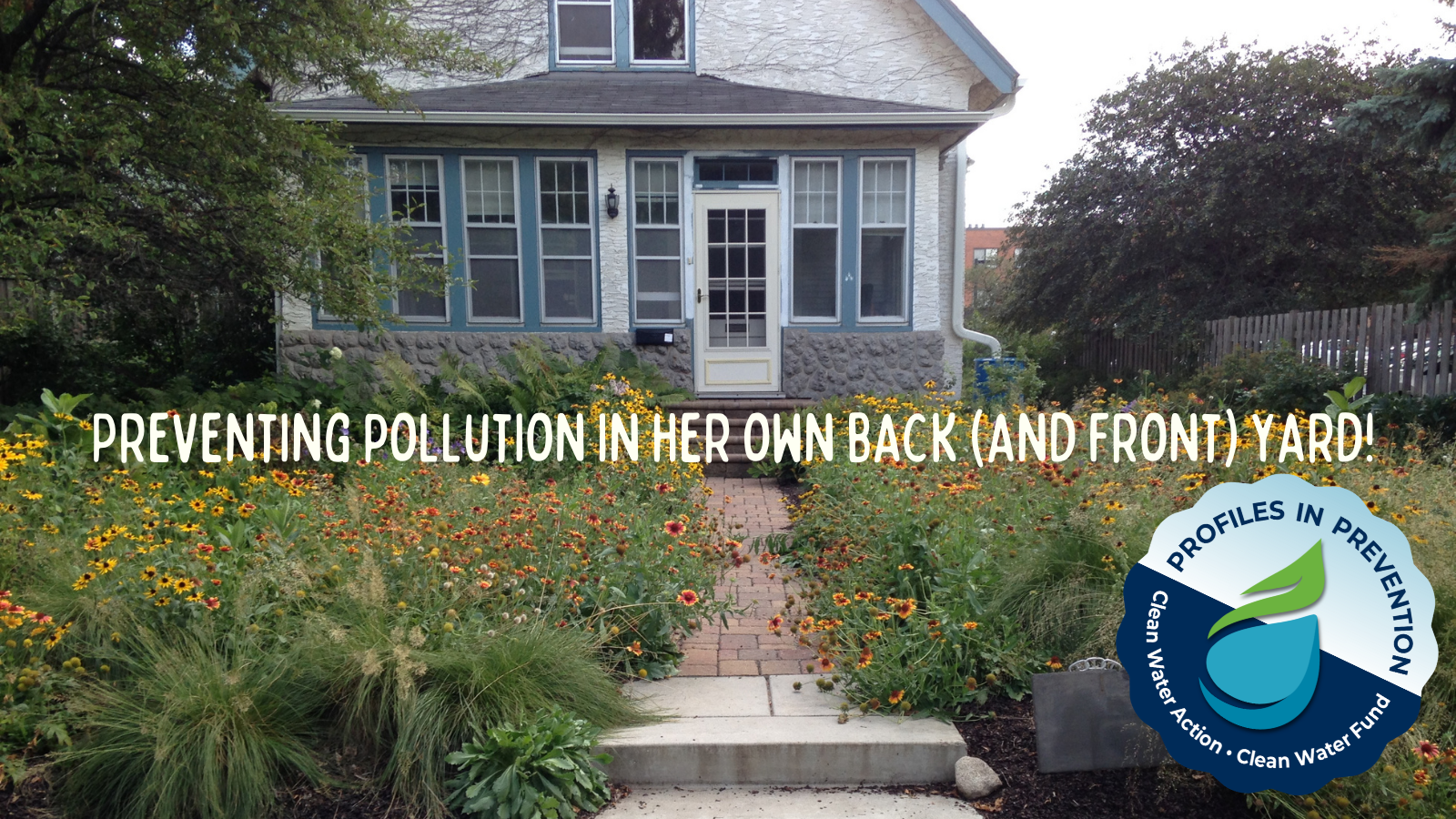
Clean Water Action and Clean Water Fund are recognizing the people and organizations who have made choices that have prevented pollution from entering our environment. Some actions are big, some are small, but all of them matter.
Want to nominate an individual or a company? Visit this page to complete the form.
Kim LaBo is a 14-year resident of the city of St. Paul
She and her husband Matt have lived in their 107- year-old home in St. Paul’s Como Park neighborhood for the past 13 years.
Pollution Prevention Accomplishment:
Kim converted large areas of her property from a conventional grass-lawn to a front yard consisting entirely of native plants and added additional native plant gardens throughout the property.
What did it take to accomplish?
Kim had to teach herself about native plants, specifically which plants were best suited for the soil and light conditions on her property. How the plants contribute to the overall aesthetic and design of the yard were additional considerations. Factors such as plant height and how easily they spread are also important qualities to understand when adding native plants.
What barriers needed to be overcome?
“I was a renter all of my adult life prior to moving back to Minnesota from Chicago. Learning how to care for a yard was new for me and I had never landscaped before. “
What lessons were learned?
• Understanding your site conditions (soil type, lighting) and the right plants for these conditions is an important step that shouldn’t be skipped
• Native plant landscaping is not totally maintenance-free. Some plants will need to be thinned and weeds need to be removed periodically.
• Many native plants can be transplanted and you can also save a lot of money by collecting native plant seeds in the fall and planting the seeds, which generally propagate very well.
How has this action changed you?
Kim sees the work she has undertaken as an act of healing - healing the health of the land and creating sanctuary for the creatures who have been displaced by human development.
“Since the addition of native plants, the biodiversity of our yard has increased dramatically because native plants generally support a much larger variety of insect life than non-native plants. Prior to incorporating native plants into our landscape, we did not see any butterflies and there was a very limited variety of birds and insects. We now have multiple species of native bees, a variety of dragon flies, humming bird moths, monarch butterflies and many other interesting pollinators and insects. This has attracted goldfinches, cedar waxwings, and other birds to our yard. We even have a greater variety of fungus – giant puffball mushrooms, which grow to the size of a basketball, have been making a consistent appearance. I now regularly walk through our yard to look at which plants are growing and which creatures are interacting with the plants. I’ve found watching a stand of bee balm humming with bees is very relaxing and brings me joy.”
How much pollution has prevented?
More water is retained on the property because the deep roots of native plants hold more water than the shallow roots of grass commonly used on conventional grass lawns. The soil in the yard is also holding more water because its health has been improved by regularly applied compost. This reduced runoff is significant because of the amount of water that stays in the yard. Even more significantly, the runoff that does occur is cleaner and doesn’t contain any fertilizer or chemicals that a traditional grass yard would contribute.
What's next?
“I’ve started growing rye grass and field peas to improve the soil health of our vegetable garden. Both plants can be used as cover crops to improve soil quality, combat compaction, eliminate erosion and maximize soil nutrients.”
Clean Water Action, in cooperation with Clean Water Fund, have reviewed publically available information presented by the companies and individuals highlighted in the Profiles in Prevention. We have provided this information to the companies and individuals for review. Being highlighted in Profiles in Prevention does not indicate any endorsement of the company or any of its products. Clean Water Action is not responsible for any misinformation that may be presented in the original source documents. For any questions, please email minneapolis(at)cleanwater(.)org.